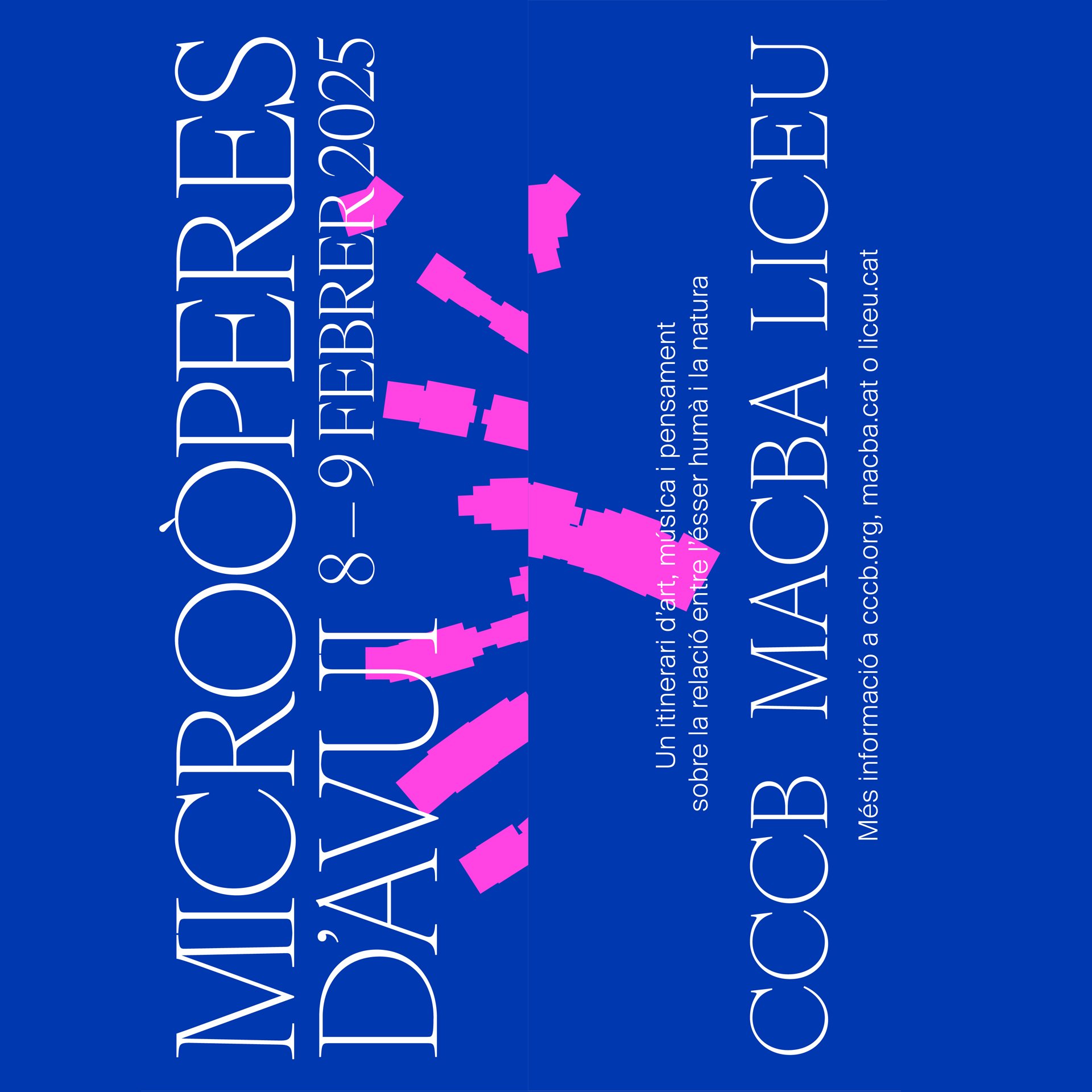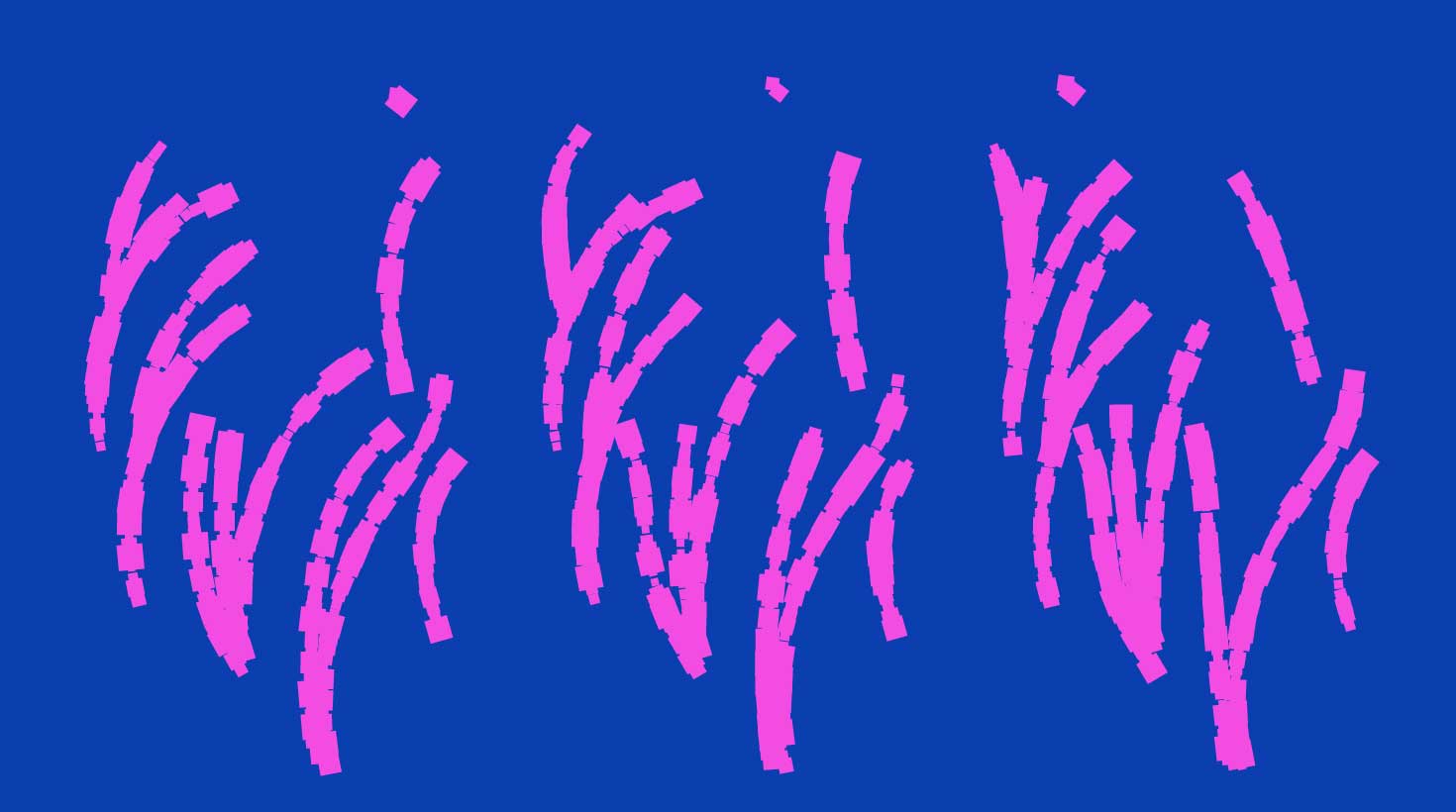A reflection on the meaning of opera in the 21st century
A project with artists from different disciplines to offer a new vision of traditional opera, from a contemporary perspective.
Microoperas d'avui is an innovative scenic proposal that brings together three key cultural institutions in Barcelona: the CCCB, the MACBA, and the Gran Teatre del Liceu. This project gathers artists from different disciplines to offer a new vision of traditional opera, rethinking it from a contemporary perspective.
Inspired by a shared concern about the climate crisis, interspecies communication, and the acoustics of nature, it presents a journey of artistic reflection woven by sound, word, and image. Each institution hosts a newly created multidisciplinary opera, lasting between 15 and 20 minutes, offering the audience a unique experience that raises new visions and questions about issues that concern and affect us.
With a focus specially designed to empower young artists from visual, scenic, and literary disciplines, Microoperas d'avui reflects on the lyric genre by exploring the relationship between music, new technologies, and new dramaturgies.



Dates and times
The ticket includes access to the three micro-operas. The total duration of the activity is 2 hours and 30 minutes. During this time, the three pieces are performed in the following order: the first at the CCCB, the second at the MACBA, and the third at the Liceu. You must arrive 15 minutes before the session starts at the CCCB Theater. There are 25 minutes between each piece to move to the next venue.
CCCB
Act 1: The Skies Won’t Keep Their Secret | CCCB Theatre
The piece, which combines elements of opera, installation, and scenic experimentation, reflects on the history of beauty and the relationship between art and nature through a dialogue between two anonymous voices traversing different life stages. With a format that questions the conventions of opera, the work is presented as a testimony to the complexity of art in its attempt to capture the beauty of the natural world, while also questioning whether this effort is revealing or futile.
In a temporal and scenic journey, both musical and light-based, The Sky Will Not Keep the Secret proposes a dialogue of voices that transform, passing through the stages of life (from childhood to old age), relationships (from love to friendship), and our connection with the world (from skepticism to fusion). The piece makes dialogue an attempt to answer the question that always accompanies us: what is the story of beautiful things?
Artistic profile
- Librettist
- Pol Guasch
- Composer
- Clara Aguilar
- Artist
- Silvia Delagneau
MACBA
Second act: Aura | Capella MACBA
Aura, a 21st-century opera conceived by poet Gabriel Ventura, composer Marina Herlop, and visual artist Rosa Tharrats, presents itself as a scenic evocation of medieval resonances with a strong pantheistic component.
Set in the 13th century, the protagonist of Aura flees from a world devastated by the wars of the Crusades of Pope Innocent III and takes refuge in a forest in Languedoc. There, she finds a fountain where the Angel of the Waters appears to her, with whom she engages in a conversation about her condition as a refugee. Water, in its various manifestations, reveals itself to her as a “door and mirror,” as hope and “grace of thought.”
Inspired by the visions of mystics like Hildegard of Bingen, as well as the forms of representation in Romanesque art (hieratism, disruption of the space-time dimension…), Aura is an invocation of melismatic chants and digital echoes, populated by aquatic beings and voices from the beyond. Incorporeal and tangible characters, possible creatures of an interspecies future.
Aura thus constitutes not only a song to nature as a space of peace and refuge, imagination, life, and thought, with water as the central element, but also a song against the devastations of war.
In a time like ours, with the urgent climate crisis, Aura reminds us of the germinative, purifying, and restorative power of water as a constitutive element of both human beings and the planet, underscoring an ecosophical awareness that we must preserve and foster for survival and harmonious balance.
Artistic profile
- Librettist
- Gabriel Ventura
- Artist
- Rosa Tharrats
- Composer
- Marina Herlop
- Co-directors of the stage
- Rosa Tharrats and Gabriel Ventura
LICEU
Third Act: Desheretaràs la terra | Sala Foyer del Liceu
Desheretaràs la terra speaks of a devastated world, where nature has lost its ability to sustain life. An ancestral figure invokes the forces of the Earth and feminine wisdom, seeking to connect with the roots of suffering and the memory of those who have witnessed the planet's decline. A lost and broken young woman searches for answers about her existence, a link between life and death, asking for help to free herself from the weight of existence.
Through a mystical and symbolic dialogue, we question the potential regeneration of our future. A piece that aims to reflect on our collective responsibility regarding the transformation and degradation of what surrounds us, inviting us to rethink our complicity with destruction.
The set design, with an organic floor that pulses with fragility, reflects the planet's decadence, while large fabrics, breathing through light and movement, suggest the emotional states of the landscape and the complexity of human and non-human relationships in constant transformation. Dance, music, and voice create a sensory atmosphere that, intertwining pain and hope, urges us to reconsider our connection with the Earth and the need to find rebirth as a species, confronting the drift to which we are accustomed.
Artistic profile
- Composer
- Fabià Santcovsky
- Librettist
- Míriam Cano
- Stage Director
- Carla Tovias
- Artist
- Carlos Bunga
- Visual artist and space design
- Carlos Bunga
- Costume design
- Marta Pell
- Lighting design
- Anna Boix
- Sound
- Sixto Cámara



